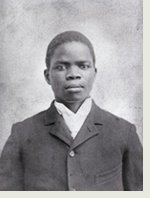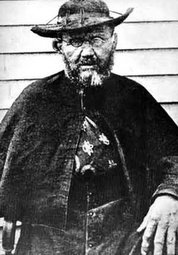“And great multitudes followed Him,
and He healed them all.”
(Matthew 12:15)
“Christ was concerned not only with humanity’s spiritual condition,” writes Schmidt “but also with its physical state. The healing acts of Jesus were never divorced from his concern for people’s souls, their spiritual well-being.”
[i] “For him no healing was complete which did not affect the soul.”
[ii] Christ was a holistic healer! He told his disciples, “I was sick and you looked after me” (Matthew 25:36). Schmidt continues,
“These words did not go unheeded. History shows that early Christians not only opposed abortion, infanticide, and abandoning infants, but they also nurtured and cared for the sick, regardless of who they were. Christian or pagan, it made no difference to them.”
The world the Christians entered during the Greco-Roman era had a colossal void with respect to caring for the sick and dying. Dionysius, a Christian bishop of the third century, described the existing behavior of the pagans toward their fellow sick human beings in an Alexandrian plague in about A.D. 250. The pagans, he said, “thrust aside anyone who began to be sick, and kept aloof even from their dearest friends, and cast the sufferers out upon the public roads half dead, and left them unburied, and treated them with utter contempt when they died.”
[iii]And we thought the after effects and response to Hurricane Katrina was under par!
The response of the early Christians was something different all together. They did not run out of fear or thrust aside the sick and dying. Rather they risked their very lives by tending to the contagiously sick and dying. Many of these faithful followers of Christ not only risked their lives, but lost them in helping others. One name that is known is,
Benignus of Kijon, a second-century Christian who was martyred in Epagny because he “nursed, supported, and protected a number of deformed and crippled children that had been saved from death after failed abortions and exposures.”
[iv]In the first century, there were no hospitals as we know them today. As already stated, those that were sick or diseased were often left to die by themselves. The only exception was those who were a part of the military. It was the Christians who would frequently take into their homes the sick and dying and care for them. It was the Christian church who began to develop centers for people to be taken care of.
The first ecumenical council of the Christian church at Nicaea in 325 directed bishops to establish a hospice in every city that had a cathedral.
[v] Although, these early Christian hospitals or hospices were not what people understand by hospitals today. Their most important function was to nurse and heal the sick, they also provided shelter for the poor and lodging for Christian pilgrims.
The first hospital was built by St. Basil in Caesarea in Cappadocia about A.D. 369. It was one of “a large number of buildings, with houses for physicians and nurses, workshops, and industrial schools.”
[vi] Some historians believe that this hospital focused exclusively on those with sickness and disease.
[vii] The rehabilitation unit and workshops gave those with no occupational skills opportunity to learn a trade while recuperating.
[viii]It is important to note – and the evidence is quite decisive – that these Christian hospitals were the world’s first voluntary charitable institutions. There is “no certain evidence,” says one scholar, “of any medial institution supported by voluntary contributions… till we come to Christian days.”
[ix] And it is these Christian hospitals that revolutionized the treatment of the poor, the sick, and the dying.
By the mid-1500s there were 37,000 Benedictine monasteries alone that cared for the sick.
[x] Nearly four hundred years after the Christians began erecting hospitals, the practice drew the attention of the Arabs in the eight century. Impressed with the humanitarian work of Christian hospitals, the Arab Muslims began constructing hospitals in Arab countries. Thus, Christ’s influence which moved his followers to build and operate hospitals, spilled over into the Arab-Islamic world, demonstrating once more that Christianity was a major catalyst in changing the world, even beyond the boundaries of the West. In this instance, it changed a world in which the sick were once largely left to fend for themselves, to one in which they were now given humanitarian medial care, a practice not known previously. Christ’s parable of the Good Samaritan had become more than merely an interesting story.
In the early church it was the bishops and monks who “took charge of lunatics at a very early period, and gathered them together in houses specially assigned for that purpose.”
[xi] During the early Middle Ages, the mentally disturbed were primarily cared for in the monasteries. It was the Association of Friends (Quakers), who in 1709, erected a general hospital in Philadelphia that housed “lunatics.”
[xii]The physician and medial historian Fielding Farrison once remarked, “The chief glory of medieval medicine was undoubtedly in the organization of hospitals and sick nursing, which had its organization in the teachings of Christ.”
[xiii] Thus, whether it was establishing hospitals, creating mental institutions, professionalizing medical nursing, or founding the Red Cross, the teachings of Christ lay behind all of these humanitarian achievements.
In the nineteenth century hospitals in the United States became more common, especially after the Civil War. As the growth of hospitals spread across the nation, it was predominantly local churches and Christian denominations that build them. This was evidenced by many of the hospital’s names. Most reflected their affiliation with a given Christian denomination or honored a Christian Saint. The Christian identity and background of many American hospitals is now being erased, however. In recent years, as health maintenance organizations (HMOs) have been purchasing more and more private Christian hospitals, their Christian names are being replaced. Thus, people, at least in America, will soon have no more symbolic reminders that the hospital(s) in their town or city had Christian origins.
The American church historian Philip Schaff summed it up well when he said, “The old Roman world was a world without charity.”
[xiv] It was the teachings of Christ that inspired Christians to demonstrate selfless charity and love, even to the point of risking their own lives, and utilizing their own resources to care for them.
What places in our community (hospitals, collages etc.) were Christian founded establishments?
Read and meditate on Acts 3:1-6.
“Now Peter and John went up together to the temple at the hour of prayer, the ninth hour.
And a certain man lame from his mother's womb was carried, whom they laid daily at the gate of the temple which is called Beautiful, to ask alms from those who entered the temple; who, seeing Peter and John about to go into the temple, asked for alms. And fixing his eyes on him, with John, Peter said, "Look at us. "So he gave them his attention, expecting to receive something from them.
Then Peter said, "Silver and gold I do not have, but what I do have I give you: In the name of Jesus Christ of Nazareth, rise up and walk." Acts 3:1-6
What are some ways you can “give what you have” to those in our community who are in need?
[i] Schmidt, Under the Influence, 151.
[ii] V. G. Dawe, The Attitude of Ancient Church Toward Sickness and Healing,” (Th.D. theosis, Boston University School of Theology, 1955), 3. Quoted in Under the Influence, 153.
[iii] Works of Dionysius, Epistle 12.5
[iv] George Grant, Third Time Around, 27. Quoted in Under the Influence, 153.
[v] Howard W. Haggard, The Doctor in History, (New Haven: Yale University Press, 1934), 108. Quoted in Under the Influence, 154.
[vi] Fielding H. Garrison, An Introduction to the History of Medicine, (Philiadelphia: W. B. Saunders, 1914), 118. Quoted in Under the Influence, 156.
[vii] Grant, Third Time Around, 19. Quoted in Under the Influence, 156
[viii] George E. Gask and John Todd, “The Origin of Hospitals,” in Science, Medicine, and History, ed. E. Ashworth Underwood, Christian Charity in the Ancient Church, (New York: Charles Scribner’s Sons, 1883), 323. Quoted in Under the Influence, 156
[ix] Garrison, Introduction to the History of Medicine, 118, Quoted in Under the Influence, 157.
[x] C. F. V. Smout, The Story of the Progress of Medicine, (Bristol: John Wright and Sons, 1964), 36. Quoted in Under the Influence, 157.
[xi] Burdett, Hospitals and Asylums, 1:16. Quoted in Under the Influence, 160.
[xii] Thomas G. Morton, The History of the Pennsylvania Hospital, (New York: Arno Press, 1973), 4-5. Quoted in Under the Influence, 161.
[xiii] Garrison, Introduction to the History of Medicine, 118. Quoted in Under the Influence, 166.
[xiv] Philip Schaff, History of the Christian Church (New York: Charles Scribner’s Sons, 1896), 2:373. Quoted in Under the Influence, 167.
















